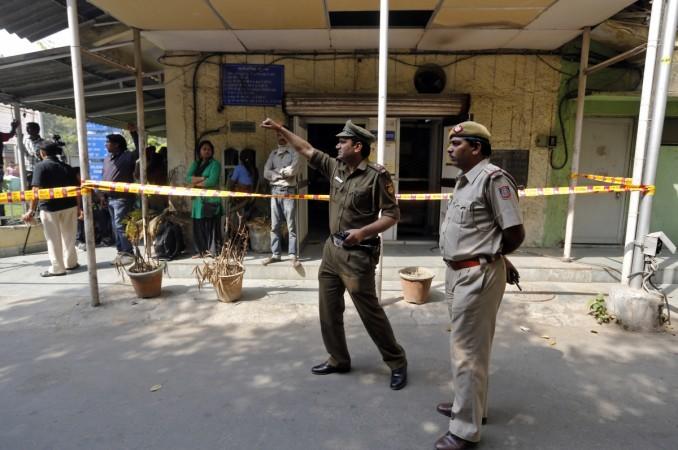
Eight members of the banned Students Islamic Movement of India (SIMI), who killed a guard and broke out of a high-security Bhopal jail early on Monday, were killed in an encounter in Eintkhedi village.
"Eight SIMI activists escaped around 2-3 am after killing a jail security guard," the Indian Express quoted DIG Bhopal Raman Singh as saying.
The SIMI men killed guard Ramashankar Yadav in the isolated C Block where they had been lodged. The convicts then held another guard hostage, before using bed sheets to fashion a rope and climb out of the jail premises.
State Home Minister Bhupendra Singh admitted to a security lapse. He also said that Chief Minister Shivraj Singh Chouhan expressed concerns about the functioning of the jail department in an emergency meeting convened in the aftermath of the incident. Five jail officials have been suspended for lapses in security, including DIG Jail and ADG Jail. A high alert was sounded across Madhya Pradesh.
The eight SIMI members on the run have been identified as Sheikh Mujeeb, Majid, Khalid, Aqeel Khilji, Zaqir Hussain, Mohd Saliq, Sheikh Mehboob, alias Guddu, and Amjad.
This is the second such escape from a Madhya Pradesh jail in three years where three of these eight men escaped from the Tantya Bheel Jail in the state's Khandwa district on October 1 2013. Mehboob, Amjad, Aslam, Zaqir, Aizazuddin and Mirza Beig, along with former state SIMI chief Abu Faisal alias Doctor, had escaped from the Khandwa jail three years ago.
Faisal, sentenced to life imprisonment last year in an ATS constable murder case and lodged in the same jail, is considered to be the mastermind behind the most recent jail break.
The escaped convicts are accused in cases that include the 2008 Ahmedabad serial blasts, and explosions in Karimnagar, Pune, and Chennai two years ago, according to police sources cited by Hindustan Times.
SIMI, launched in 1977 to further the welfare of Muslim youth, took up a hardline ideology after the Babri Masjid demolition in 1992. It was eventually banned in 2001, but experts believe that many members went underground and continue to expand their network.
Security agencies say that there are roughly 20,000 ordinary members and more than 400 full time cadre working for SIMI. The last, most high profile arrest was of Aqeel Khilji, a former state SIMI chief picked up in 2012 from Maharashtra on charges of planning the assassination top RSS and BJP leaders.

















